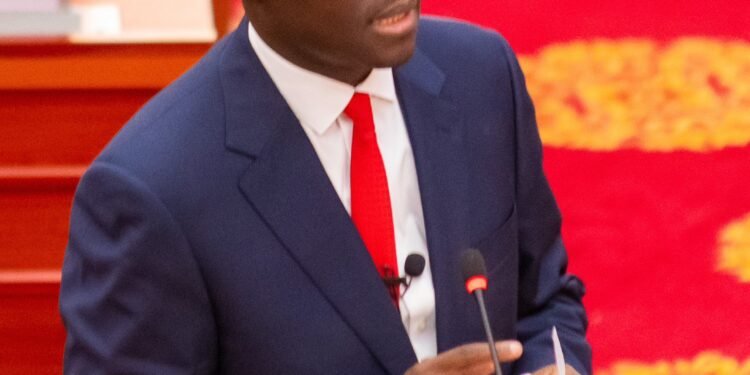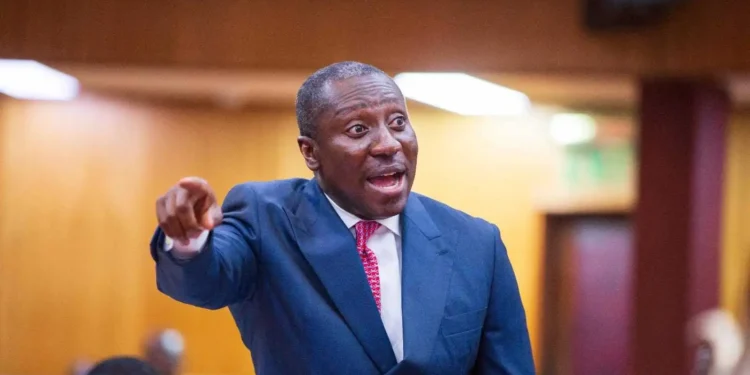The Government of Ghana has outlined a major advance in its long-term plan to shift the country’s power generation from light crude oil to natural gas, describing the reform as a central pillar of its effort to stabilise the energy sector and strengthen the economy.
Presenting the 2026 Budget Statement to Parliament, Finance Minister Dr. Cassiel Ato Forson said the transition is now moving at a faster pace, with new agreements, expanded field output and upgraded processing facilities beginning to reshape the sector.
He explained that the shift toward natural gas is intended to reduce generation costs, create savings across the energy value chain and improve the stability of supply.
“We are advancing our Gas-to-Power Strategy to transition from the costly light crude oil for power generation to cleaner, domestically produced natural gas.”
Finance Minister Dr. Cassiel Ato Forson
He added that this change is expected to deliver a major financial turnaround.

“This strategic shift will cut generation costs by at least 75 percent, reducing the energy sector financing shortfalls and its fiscal impact on the budget, enhancing energy security and aligning with our climate commitments.”
Finance Minister Dr. Cassiel Ato Forson
The minister positioned the reform as one that supports both economic prudence and environmental responsibility.
Field Upgrades Lift Production Capacity
Dr. Forson reported that the work undertaken by the Offshore Cape Three Points partners has already resulted in higher volumes available to Ghana’s power system.
He noted that a major upgrade completed in July 2025 raised processing capacity from about 240 million to 270 million standard cubic feet of gas per day. He described this as one of the early achievements under the broader energy transition framework.
Production from other fields is also rising. The minister explained that the Jubilee and TEN fields have increased gas output to approximately 130 million standard cubic feet of gas per day, up from about 110 million.
This provides additional supply to support the country’s generation plants while lowering its dependence on imported liquids.
New Supply Agreements Strengthen the Outlook

The Finance Minister disclosed that the Government has secured fresh commitments from upstream partners to expand domestic gas supply.
“We have also secured a firm agreement with the OCTP partners, led by ENI, for an additional 80 million standard cubic feet of gas per day of new gas supply.”
Finance Minister Dr. Cassiel Ato Forson
He added that a further agreement has been reached with the Jubilee partners to boost gas production by 70 million standard cubic feet of gas per day.
These new inflows are expected to ease pressure on the power utilities and contribute to a more balanced sector over time. They also form part of the Government’s wider objective to substitute costly crude oil with locally produced gas.
Government to Expand Processing Capacity

The increased availability of gas now requires expanded processing and transport infrastructure. Dr. Forson explained that the Government has set up a project implementation committee to ensure that the required facilities are delivered within a reasonable timeframe.
He stated that this includes an accelerated plan for a second gas processing plant, the Ghana Gas Processing Plant Two, which is meant to offtake the added supply from the Jubilee fields.
According to the minister, the construction of GPP 2 is essential to ensure that the growing feedstock from Ghana’s producing fields is fully integrated into the country’s power generation system.
The new plant is expected to support the long-term stability of the Gas-to-Power Strategy and reduce the risk of stranded volumes.
The minister framed the gas transition as more than a technical exercise. He argued that its impact on the public purse will be substantial, especially at a time when the Government is working to improve cost control across the energy sector.
Rising fuel bills, legacy debts and shortfalls linked to operational inefficiencies have placed significant pressure on the annual budget, and the move to natural gas is intended to ease these burdens.
As Dr. Forson told Parliament, the reform is central to the country’s effort to build an energy sector that supports economic development rather than constrains it.
With the work now under way, the coming years will test how effectively the strategy can reshape the sector and ease the financial pressures that have burdened the national budget for more than a decade.
READ ALSO: Ato Forson Promises Renewed Investment for Benso Oil Palm Plantation























